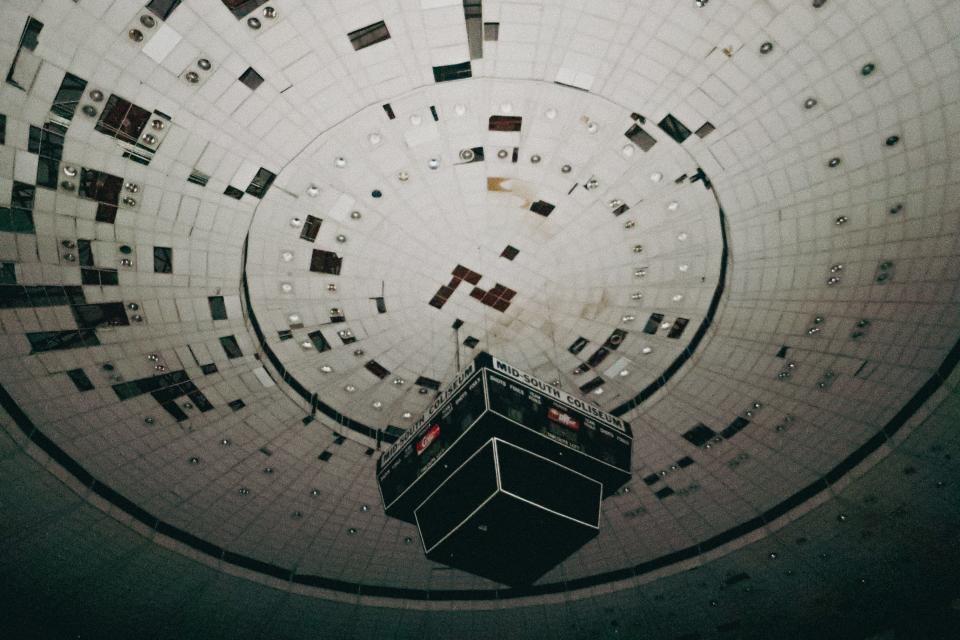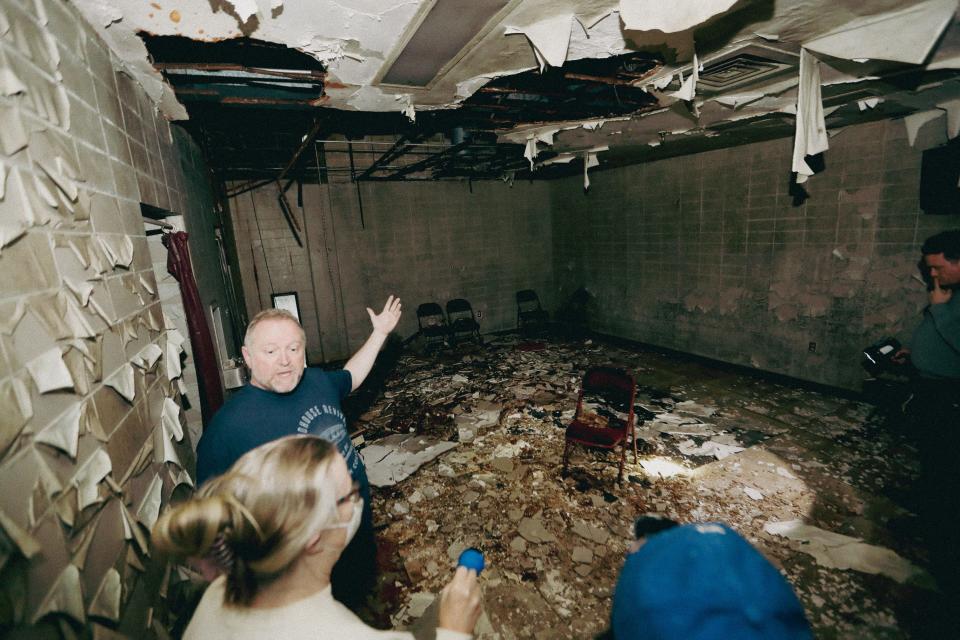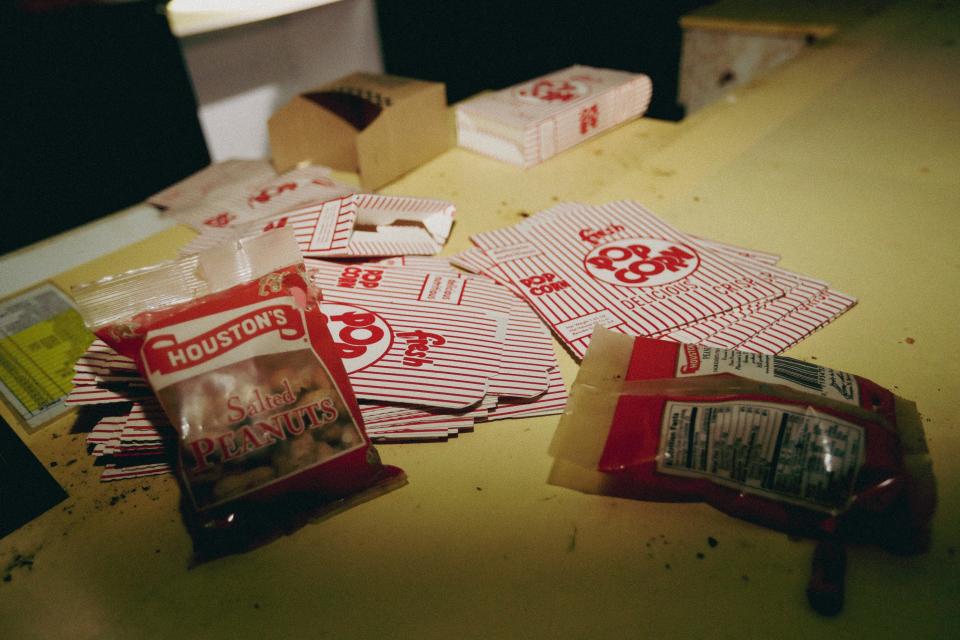A look inside the Mid-South Coliseum: Arena holds mix of mold, memories and possibility?
Facing a group of about a dozen Memphians, Charles "Chooch" Pickard gestured upward toward an old wire-covered clock, affixed high on a wall, surrounded by thousands of empty seats inside the junk-littered bowl of an indoor arena.
"That clock is in the picture of the Beatles performing here," Pickard said, referring to one of the famous photographs of John, Paul, George and Ringo onstage in Memphis on Aug. 19, 1966, the only day the Fab Four performed in the hometown of their idol, Elvis.
Although that particular clock is dead, the clock is ticking again on the campaign to restore, repurpose and resurrect the Mid-South Coliseum, the iconic city-owned arena that hosted the Beatles, weekly wrestling matches, the Larry Finch-led Memphis State Tigers and just about every significant rock, pop and soul act that ever hit the road in America between 1964 (when the Coliseum opened) and 2006 (when the Coliseum closed, in part because of the effect of an agreement that gives the Memphis Grizzlies organization veto power over concerts that might compete with FedExForum).

Affectionately known as "The Roundhouse" because of its flying saucer shape, the Coliseum interior echoed with footsteps Friday for the first time in almost two years, as the Coliseum Coalition revived its tradition of "Coliseum tours" for members of the media, community activists, politicians and other so-called influencers.
Friday's morning and afternoon tours enabled the nonprofit Coalition, a veteran group of Coliseum champions, to join forces in a literal sense with members of the Mid-South Coliseum Conservancy, a new nonprofit that intends to actively promote the economic development potential of the shuttered arena, which enthusiasts believe could be reimagined as a multiuse facility, in the manner of Crosstown Concourse.

"The best use of the space is to keep the building 'live' all the time," said Conservancy co-founder Corey Strong, a Navy veteran and former chair of the Shelby County Democratic Party, noting that Crosstown's mix of shops, restaurants, galleries, studios and venues attract visitors 365 days a year.
In addition to a central arena that could be scaled down to a smaller size, the Coliseum contains extensive room for shops, bars and so on, in its concourses and elsewhere. How extensive? More than 63,000 square feet of space in the upper and lower concourse, combined; the arena floor adds another 24,500 square feet.
MEMPHIS CONCERTS: The Beatles, Elvis, Jay-Z and more: 15 Mid-South Coliseum concerts to remember
With Coalition leaders Pickard and Marvin Stockwell acting as both sherpas and docents, Friday's tours were essentially expeditions, requiring participants to be climbers and spelunkers as well as rubberneckers as the group snaked its way through the dark and alternately cramped and capacious interior of the enormous building, with its snaky press box hallway, its probably haunted locker rooms, its littered concourse, its steep rows of 9,000-plus seats, and its cavernous arena floor, which now functions as an absurd storage space for that inveterate hoarder, the City of Memphis: The floor contains everything from discarded nacho machines to septic tanks.

Broken glass crunched underfoot outside the vandalized executive offices. Scattered popcorn boxes, a random jar of jalapenos and cans of Bud Lite now almost old enough to drink themselves waited forlornly under peeling "Concession" signs. Mold and memories filled the air. "So when young Marvin Stockwell saw KISS and AC/DC in 1978, I would have been sitting right about there," said Stockwell, pointing into the seats.
Despite such reminiscences, "Nostalgia is just the icing on the cake," Pickard said. "We're always being accused, 'It's just nostalgia,' but we know the building is restorable, and we know the community loves it."
"It's not easy, but it's doable," said Scott Bojko, a project consultant who has worked with Gibson Guitar and the Henry Turley Company, and was key to the development of the Old Dominick Distillery. The price tag will be many millions of dollars, but what's also required, he said, is "political will."
This article originally appeared on Memphis Commercial Appeal: Mid-South Coliseum: A look inside the iconic Memphis arena
